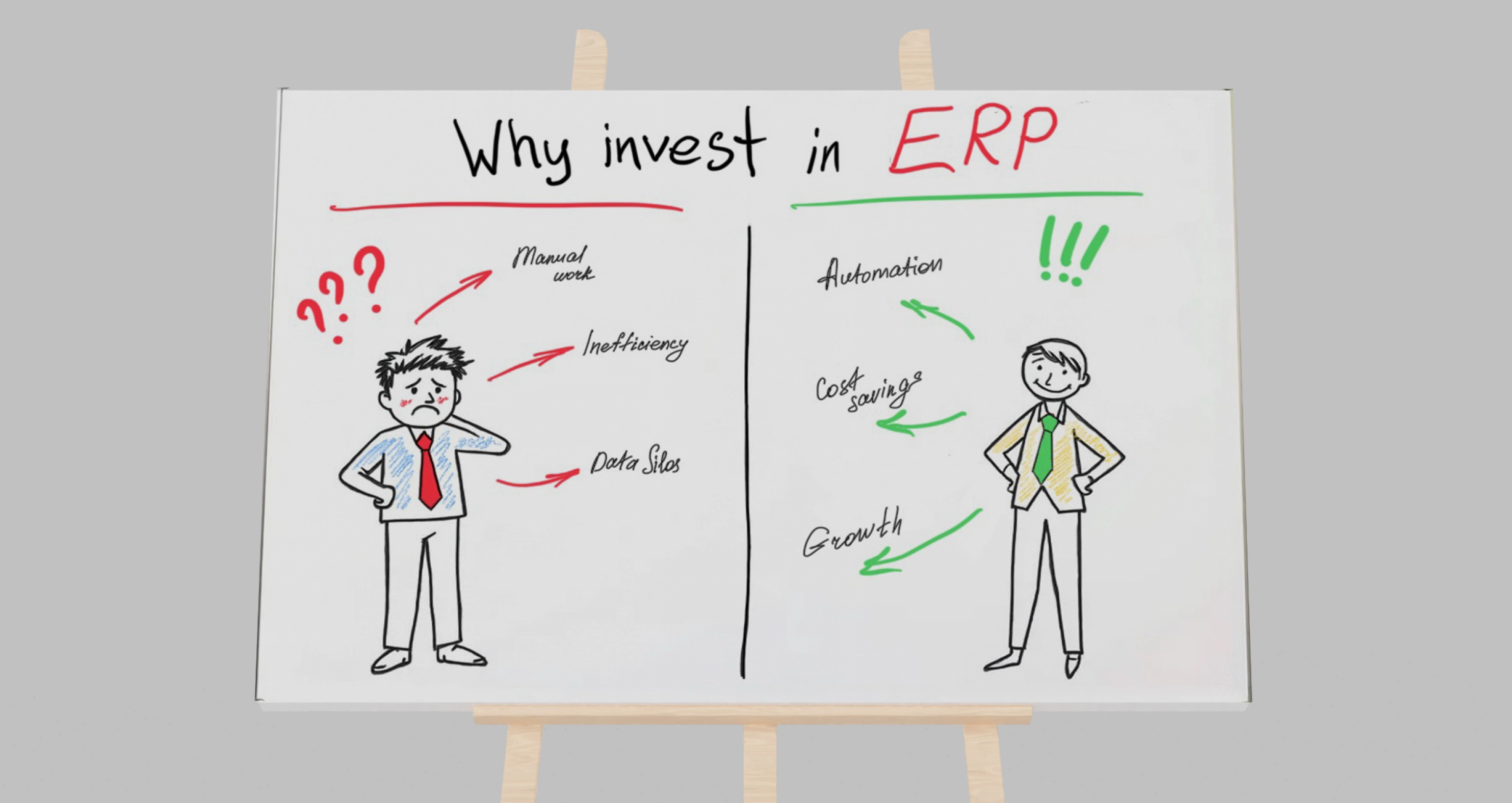

The Importance of Custom ERP Systems for Businesses
Mar 20, 2025 in Design , Development
Custom ERP systems offer businesses tailored functionality, better integration, scalability, and long-term cost savings compared to off-the-shelf solutions. They enhance efficiency, security, and compliance, making them ideal for companies with unique workflows or growth needs.
In today's competitive business landscape, companies rely on Enterprise Resource Planning (ERP) systems to streamline operations, enhance productivity, and optimize decision-making. While many businesses turn to ready-made ERP solutions, others find that a custom-built ERP system tailored to their specific needs provides greater value and efficiency. But when should a company consider building its own ERP, and what advantages does a custom solution offer?
Why Companies Need an ERP System
An ERP system integrates various business processes—including finance, HR, inventory, supply chain management, sales, and customer relationship management—into a centralized platform. This integration enhances communication, reduces data silos, and improves efficiency across departments. Without an ERP system, businesses often struggle with inefficiencies caused by disjointed processes and fragmented data.
When Should a Company Build Its Own ERP?
While off-the-shelf ERP solutions offer convenience and quick deployment, they may not always align with a company’s unique needs. Here are some scenarios where building a custom ERP system is a better choice:
- Highly Specialized Business Processes
If a company operates with unique workflows that off-the-shelf solutions cannot accommodate without extensive customization, a custom ERP ensures the system aligns with specific operational requirements. - Scalability and Flexibility Needs
Growing businesses require an ERP system that can scale with them. Custom ERP solutions provide the flexibility to add features and modules as business needs evolve, avoiding unnecessary costs for unused functionalities in pre-built solutions. - Integration with Existing Systems
Many businesses use a variety of software solutions for accounting, customer management, or supply chain operations. A custom ERP can seamlessly integrate with existing tools, preventing workflow disruptions and enhancing data consistency. - Cost-Effectiveness in the Long Run
While the initial investment in a custom ERP system may be higher, it eliminates the recurring licensing fees and costly per-user pricing models associated with SaaS ERP solutions. Over time, businesses gain full control over their ERP without being locked into vendor pricing models. - Enhanced Security and Compliance
Businesses in regulated industries, such as healthcare and finance, need tailored security and compliance features. Custom ERP solutions provide greater control over data protection and compliance with industry-specific regulations.
Advantages of a Custom ERP System
1. Full Control and Customization
A custom ERP allows companies to design their system precisely according to their workflow, ensuring that all features are relevant and useful. Unlike generic ERP solutions, a tailored system eliminates unnecessary functionalities that may clutter operations.
2. Seamless Integration
Custom ERP systems integrate with existing software, reducing disruptions and improving operational efficiency. This ensures smooth data exchange across departments, resulting in better collaboration and decision-making.
3. Cost Savings Over Time
Though custom ERPs have a higher upfront development cost, they eliminate ongoing subscription fees and restrictive licensing models. Businesses only pay for what they need, ensuring long-term financial efficiency.
4. Increased Efficiency and Productivity
Since a custom ERP is designed to match specific business operations, employees can work more efficiently, reducing manual processes and improving productivity.
5. Better Data Security and Compliance
With a custom-built ERP, companies can implement specific security measures tailored to their needs, ensuring compliance with regulatory requirements and reducing vulnerability to external threats.
6. Competitive Advantage
A business with a custom ERP system gains an edge over competitors by optimizing processes in ways that generic solutions cannot. Unique features and automation tailored to business needs improve operational speed and customer service.
Conclusion
While ready-made ERP solutions work well for many businesses, companies with unique workflows, security concerns, or scalability needs should consider building their own ERP system. A custom ERP offers tailored functionality, seamless integration, enhanced security, and long-term cost savings—helping businesses stay agile and competitive in a rapidly evolving market.
If your business is considering a custom ERP solution, now is the time to evaluate whether your current systems align with your growth goals. Investing in a personalized ERP system ensures efficiency, scalability, and long-term success.
👉 If you're ready to take the next step toward improving your business operations, feel free to schedule a free consulting call with our expert team. Let’s discuss how we can provide tailored solutions that meet your unique needs. Book your call today, and we’ll be happy to guide you through the process!
Further Reading
